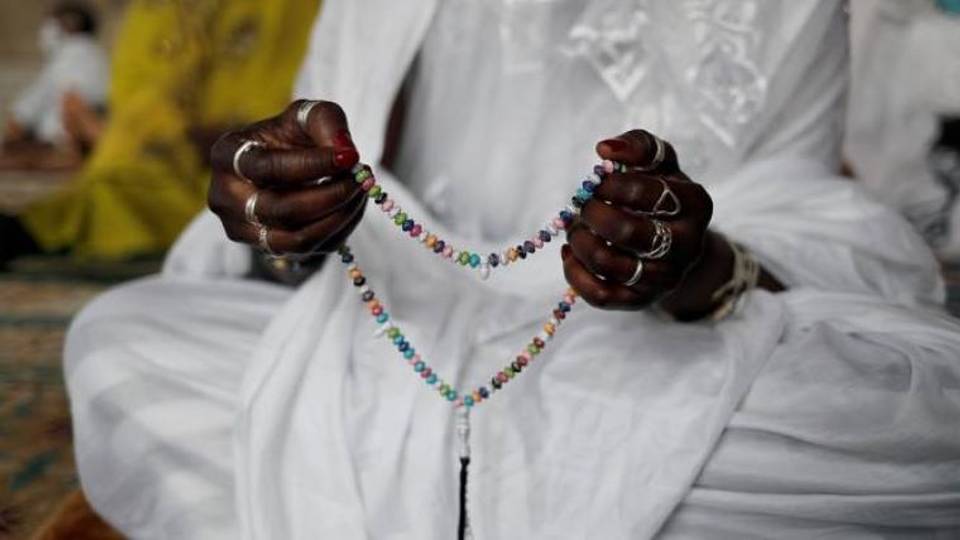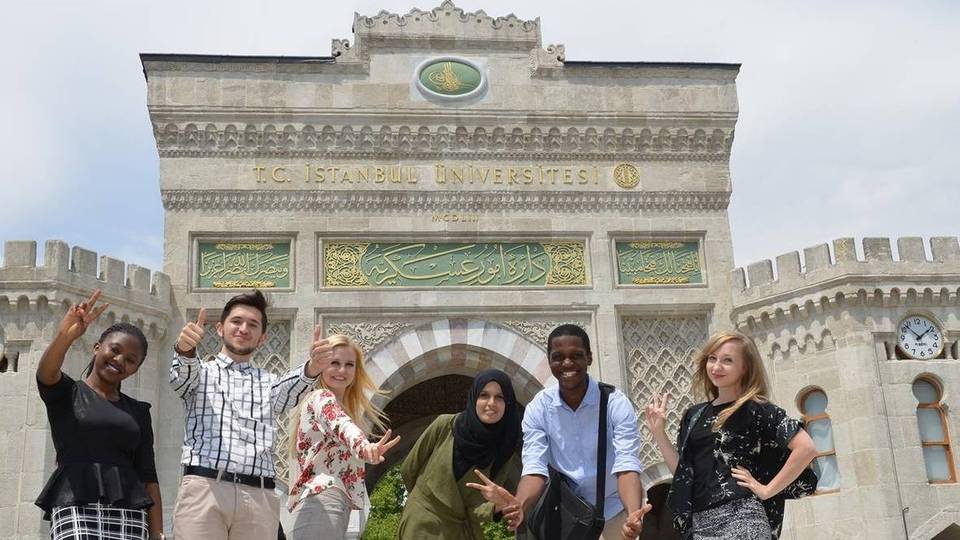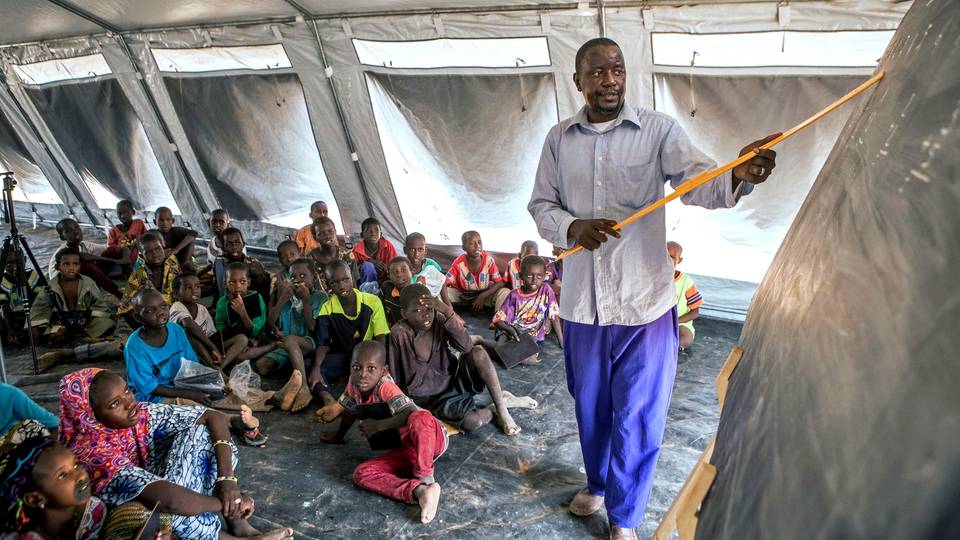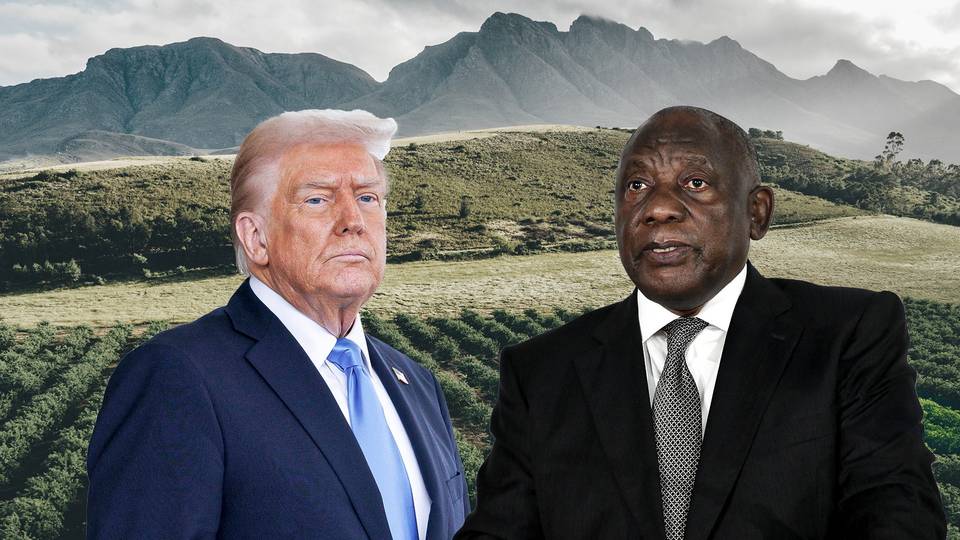Sport
Dollar
38,1588
0.3 %Euro
43,6101
1.61 %Gram Gold
3.958,7400
2.25 %Quarter Gold
6.529,2600
2.67 %Silver
39,4700
3.6 %With its young population, vast natural resources and booming economy, the continent is poised to play a greater role on the world stage. China and Russia are already asserting their influence, despite the US' old-school, security-focused approach.

By Mehmet Cem Oğultürk
Donald Trump's first presidential election surprised the world, and his unique foreign policy influenced countries well beyond the United States' most loyal partners.
And yet, consistently throughout his presidency and even up until now, Africa—by many accounts the continent of tomorrow and a potpourri of colourful potential—seldom surfaced in public sentiments or policy agenda items.
During his first term, Trump's Africa policy appeared somewhat haphazard and directionless. As his re-election looms, however, the question arises: what role will Africa have in Trump's next term, and how will this impact stability on the continent and American interests?
China lens
When Trump first ran for office, he made few statements about Africa, leaving little insight into his stance toward the continent. Once elected, his attention turned to security, specifically counterterrorism efforts in select African nations.
This embodied Trump's preference for short-term defence goals, rather than a recognition of Africa's multifaceted needs, which include economic growth and humanitarian assistance.
A significant factor in Trump's view of Africa was China. Viewing Africa through the lens of his trade war with China, Trump closely monitored African business relations with Beijing.
However, instead of providing a positive alternative for African nations, his approach (largely based on competing with China) marginalised US influence and invited criticism that he undervalued Africa's potential.
'America First' doctrine
Trump's "America First" stance also put limits on economic relations with Africa. The African Growth and Opportunity Act (AGOA), a program launched during former President Barack Obama's presidency to boost African exports, was met with indifference by Trump's administration.
Trump showed little interest in forging new trade deals with African countries, signalling that expanding US-Africa economic ties wasn't a priority. This stance constrained growth opportunities on both sides.
By prioritising domestic interests, Trump effectively left space for other global powers, particularly China, to deepen their engagement. By not capitalising on its potential as a key investor, the US missed an opportunity to bolster its economic presence across the continent.
Military cooperation
While the Trump administration de-emphasised economic relations with Africa, it maintained military cooperation, particularly in regions struggling with terrorism, like the Sahel and Somalia.
The US supported counterterrorism measures, positioning itself as a key player in fighting various groups including Al Shabab in Somalia, Daesh affiliates in the Sahel and Boko Haram in Nigeria, mainly through airstrikes, training and intelligence-sharing with local and regional forces.
Trump's security-focused approach didn't address Africa's deeper social and economic issues, making it a short-term solution rather than a lasting fix.
Yet, Trump's security-focused approach didn't address Africa's deeper social and economic issues, making it a short-term solution rather than a lasting fix.
Trump's approach meant that the US military presence in Africa served to protect American interests without engaging with the underlying challenges facing African societies. His Africa policy relied on military strength to maintain influence, rather than fostering a sustainable path for African development.
Doing the latter would have helped reduce instability and extremism at its roots, benefiting US security. It would also have created economic opportunities that strengthened US-Africa trade and diplomatic relations over the long term.
New Cold War?
Recently, Africa has attracted considerable attention from global powers, with China and Russia making significant inroads.
While Trump's administration viewed China's growing influence with concern, it didn't offer a robust alternative approach. Through investments in African infrastructure and financial partnerships, China has developed a substantial presence, while Russia has expanded its influence through military deals.
In comparison, Trump's administration lacked a coordinated strategy to counter these moves, weakening the US's standing on the continent in the long run.
With an "America First" mindset, Trump's policy failed to curb China and Russia's influence in Africa, turning the continent into a critical arena in global geopolitics. Trump's lack of engagement risks leaving the US on the sidelines.
Africa's future role
With Trump's re-election, an expanded US policy toward Africa is needed. Africa, with its young population, vast natural resources, and booming economies, is poised to play an increasingly significant role in the global market.
For the US to remain relevant, Trump's administration should recognise Africa as a strategic partner, balancing security interests with investments in economic, political, and social initiatives.
To maintain a strong presence, the Trump administration should leverage tools like AGOA, foster trade relationships, and encourage investments in African development projects.
US military presence should not only focus on counterterrorism, but also on addressing the root causes of instability and supporting sustainable political solutions.
Uncertainty around Trump's Africa policy has diminished US influence, while countries like China and Russia have capitalised on the gap.
Amid rising global competition, the US cannot afford to overlook Africa's strategic importance.
Moving forward, Trump should aim for a more comprehensive and consistent approach toward Africa.
By acknowledging Africa's importance in global geopolitics and strengthening partnerships, the US can re-establish itself as a reliable ally and influential power on the continent.
Amid rising global competition, the US cannot afford to overlook Africa's strategic importance.
Building diplomatic, economic, and military alliances with African nations is crucial to securing America's influence and staying competitive in this essential region.
The author, Mehmet Cem Oğultürk currently serves as the Director of the Africa Application and Research Centre at Istanbul Aydın University and as the Head of the Department of Political Science and International Relations. He graduated from the Turkish Military Academy in 1993. He was Head of the Liaison Office and Acting Commander during the establishment phase of the TURKSOM Military Training Centre in Somalia in 2016-2017. His academic interests encompass International Security and Transatlantic Relations, with a specific focus on Africa and the Balkans.
Disclaimer: The views expressed by the author do not necessarily reflect the opinions, viewpoints and editorial policies of TRT Afrika.
➤ Click here to follow our WhatsApp channel for more stories.
Comments
No comments Yet




















Comment